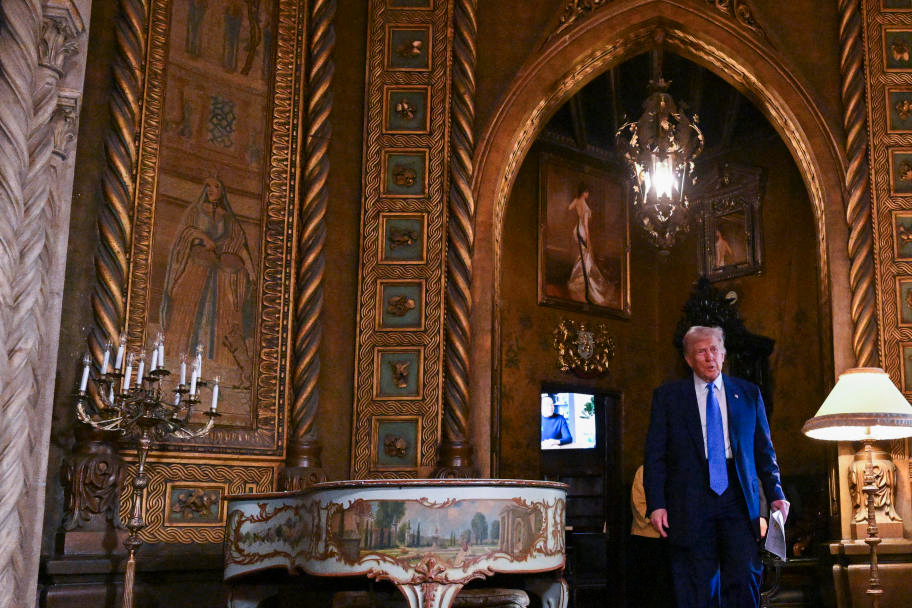President Donald Trump on Tuesday signed a sweeping executive order bringing independent agencies under the control of the White House — an action that would greatly expand his power but is likely to attract significant legal challenges.
It represents Trump’s latest attempt to consolidate power beyond boundaries other presidents have observed and to test the so-called unitary executive theory, which states that the president has the sole authority over the executive branch. And it reflects the influence of Russ Vought, Trump’s budget chief, one of several conservatives in his orbit who have called for axing independent arms of the executive branch.
The theory was long considered fringe, and many mainstream legal scholars still believe it is illegal, given that Congress set the agencies up specifically to act independently, or semi-independently, from the president. These include the Federal Communications Commission, the Federal Trade Commission and the Securities and Exchange Commission, all of which enact regulations and can impose hefty fines on businesses that violate the rules.
Other presidents have not only declined to challenge the independence of these agencies in court, but have in many cases tried to avoid even the appearance of interference in their actions. Many leaders appointed to the agencies serve terms that last longer than a single presidency, in an effort to help shield them from political pressure.
The order would take that independence away by granting Vought, who reports to Trump, supervising power.
The executive order requires Vought, as the director of the Office of Management and Budget, to “establish performance standards and management objectives” for the heads of independent agencies and “report periodically to the President on their performance and efficiency in attaining such standards and objectives.” It also requires Vought to review and make changes to the agencies’ budgets “as necessary and appropriate, to advance the President’s policies and priorities.”
“For the Federal Government to be truly accountable to the American people, officials who wield vast executive power must be supervised and controlled by the people’s elected President,” the executive order states.
While the executive order is sweeping in nature and represents a fundamental reshaping of the federal government, it effectively codifies actions the Trump administration has already been taking, setting up the administration’s legal position in an expected court fight. Trump has, for instance, already fired Gwynne Wilcox, former chair of the National Labor Relations Board, the NLRB’s general counsel, Jennifer Abruzzo, and Office of Government Ethics Director David Huitema. Wilcox has filed a lawsuit contesting her dismissal.
And Vought, almost immediately upon taking office, assumed the title of acting director of the Consumer Financial Protection Bureau, another independent agency, halting further funding to the agency and firing its employees en masse.
But the order has broad — and potentially immediate — implications for a host of other independent agencies that have not yet been penetrated by the administration. And while it doesn’t apply to the Federal Reserve’s handling of monetary policy, it does apply to the Fed’s other responsibilities, including overseeing banks and other financial institutions.
Independent agencies often find themselves in the political crosshairs, either because they take actions that appear to align or conflict with a sitting president’s agenda. Those include the SEC’s efforts during the Biden era to force companies to disclose the risks they face from climate change, as well as the FCC’s more recent actions to investigate companies such as CBS for alleged bias against Trump during the 2024 campaign.
Under the order, independent agencies must appoint White House liaisons and “regularly consult with and coordinate policies and priorities” with not only Vought’s office but the White House Domestic Policy Council and National Economic Council.
It also neuters the agencies’ attorneys by asserting that “no employee of the executive branch acting in their official capacity may advance an interpretation of the law as the position of the United States that contravenes the President or the Attorney General’s opinion on a matter of law.”
Trump had made less dramatic intrusions into independent agencies’ power during his first term, including by pressuring both the FTC and FCC to punish social media networks accused of censoring conservatives — including himself.
In one episode that made headlines, Trump met with then-FTC Chair Joseph Simons in the White House and pushed him to take action on the censorship allegations, as POLITICO reported in August 2020. Simons had told lawmakers he considered the matter outside the agency’s jurisdiction.
Trump also stunned lawmakers that year by withdrawing the renomination of Republican FCC member Michael O’Rielly, who had expressed skepticism about using his agency’s powers to penalize online platforms for alleged ideological bias.
“I shudder to think of a day in which the Fairness Doctrine could be reincarnated for the internet, especially at the ironic behest of so-called free speech ‘defenders,’” O’Rielly said in a speech a few days before Trump pulled the plug on him.
The GOP-held Senate swiftly confirmed Trump’s replacement for O’Rielly, fellow Republican Nathan Simington.
In contrast, former President Barack Obama faced complaints from Republicans when he took actions that appeared to blur the lines between White House policy and the agencies’ decision-making. Those included Obama recording a video message in 2014 to urge his FCC chair to adopt strong net neutrality regulations, as well as a 2011 White House visit by Obama’s FTC chair on the same day that senior Google officials — whose company was under an antitrust investigation — were on the premises.



